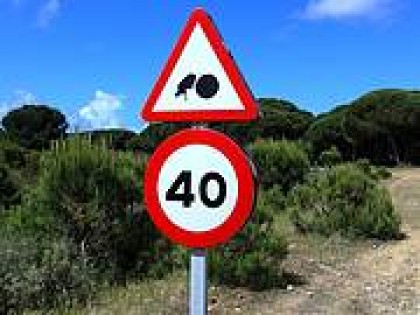
September 2014
 | September 2014 |
Mediterranean Red List workshop on dung beetles | |
|---|---|
 Organized at the Doñana Biological Station (Huelva, Spain) with the support of the Spanish National Research Council (CSIC), the workshop brought together 12 experts from different Mediterranean countries and dealt with the conservation status of dung beetles in the Mediterranean region. Dung beetles play a remarkable role in ecosystems. By burying and consuming dung, they improve nutrient recycling and soil structure, help reduce the amount of methane released into the atmosphere (one of the most potent of the heat-trapping greenhouse gases) and in some cases act as secondary seed dispersers. By removing the dung which, if left, could provide a habitat for pests such as flies, they also contribute to parasite control. Due to the high sensitivity of dung beetles to habitat modification and changing dung resources, many of these ecological processes have already been disrupted or may be affected in the future. This Regional Red List workshop is part of an important regional initiative to conduct comprehensive extinction risk assessments of the more than 2,500 species of invertebrates and plants that occur in the Mediterranean region (more information about the initiative may be found HERE). For further information, please contact: Catherine Numa | |